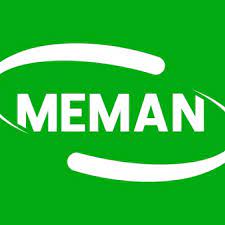Following the deregulation of the downstream of the petroleum industry, the pricing of the Premium Motor Spirit PMS or Petrol in Nigeria is beginning to align with the international market.
James Gooder, VP, Crude Oil at Argus Media gave this insight while making a presentation on the theme “Market Trends Transparency and Fair Pricing” on petroleum products in Nigeria’s petroleum sector.
The presentation which was facilitated by the Major Energies Marketers Association of Nigeria (MEMAN) highlighted the significant impact of logistics and pricing parameters on the final cost of Premium Motor Spirit (PMS), commonly known as petrol.
In his presentation, he highlighted the challenges relating to jetty infrastructure, vessel capacity, and exchange rate stability, all of which shape the pricing landscape of petroleum products in Nigeria.
“One of the key issues was the limitation of Nigeria’s jetties in accommodating larger vessels. The Vice President at Argus Media said that deeper drafts and larger depots are essential for maximizing efficiency and reducing costs,” he said.
“The larger your draft, the larger the vessel you can bring in,” Gooder said. “This allows for economies of scale, as larger vessels result in lower costs per unit of product delivered. Unfortunately, many of the jetties, particularly in areas like Warri and Calabar, have draft sizes of about five meters, limiting the size of vessels that can dock there.”
These limitations translate to higher logistics costs, which ultimately affect the pump price of petrol. He pointed out that Investments in improving jetty infrastructure are critical to addressing this bottleneck. “If we can deepen these drafts and improve the channels, it will boost business in those areas and accommodate larger vessels,” he said.
Gooder acknowledged that major marketers have tried to optimize logistics by sharing vessels. “This shared approach enhances efficiency and reduces costs, but it’s only a partial solution. Addressing structural issues is the long-term answer,” he noted.
The Presentation also focused on the factors influencing the landed cost of PMS. The two primary elements are the exchange rate and the cost of imported products. “The landing cost are calculated daily based on the spot price of the product and the prevailing exchange rate,” Gooder said.
According to him data from October to November revealed that the exchange rate of the Naira to the Dollar has been relatively stable. Coupled with a global decline in crude oil and gasoline prices, this stability has contributed to a reduction in the landed cost of PMS.
“When the FX rate is stable, and the product cost decreases, the landed cost and pump price come down accordingly,” he explained. However, he cautioned against misinterpreting these reductions as acts of generosity by marketers. “It’s not about magnanimity. The prices drop because the key variables in the cost calculation are favorable” he maintained.
In addition to the exchange rate and product cost, several other charges influence the final cost of PMS. These include vessel costs, Nigerian Ports Authority (NPA) charges, and expenses related to the Nigerian Maritime Administration and Safety Agency (NIMASA).
“Vessel charges alone have dropped from $60,000 to $50,000, which is significant,” he noted. However, other finance-related charges and nursing costs still contribute to the overall landed cost.
The presentation emphasized the importance of transparency in understanding these costs. “These charges are outlined so stakeholders can appreciate the complexity behind pricing. It’s not just about the product; it’s about the entire logistics chain” he said.
To ensure pricing stability, MEMAN members are said to rely on an average pricing model. “Products are not purchased on daily bases, so a 30-day average price for products in storage is used. This approach moderate daily fluctuations and offers a more predictable pricing structure,” he explained.
Graphical data presented showed the daily spot price and 30-day average price trends. The average pricing model has been instrumental in cushioning the impact of volatile international markets on local pump prices.
Despite the challenges, there is optimism about the future. “Nigeria’s exchange rate is stabilizing, and crude prices are coming down. These trends are positive for consumers,” Gooder noted. However, infrastructure investment remains a pressing need.
Therefore there is the need for collaborative efforts between the government and all stakeholders in the oil and gas industry to address these issues. “Improving our logistics and infrastructure will not only reduce costs but also enhance energy security,” he maintained.
“The channels to many of the jetties are narrow and shallow. Fixing these issues will require significant investment, but the long-term benefits far outweigh the costs” he emphasized.

